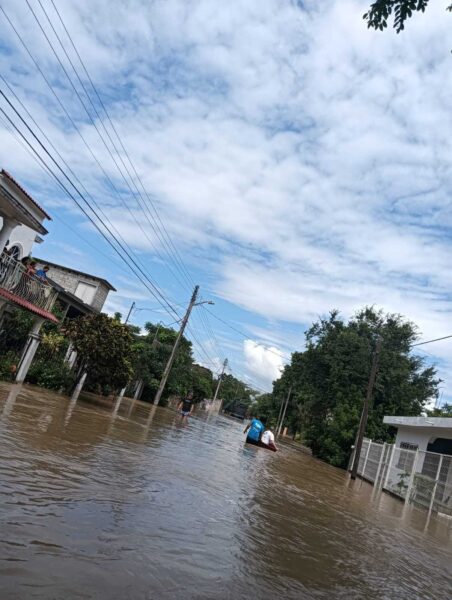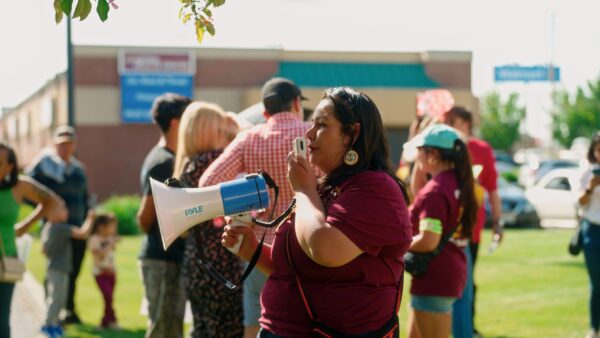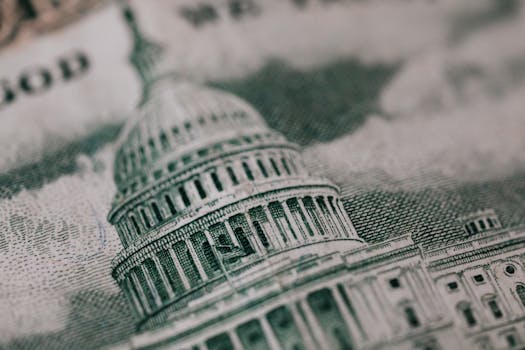Washington Conservation is proud to award the 2025 Bullitt Prize to Free and Raven Borsey, of the Lummi Nation.
The Bullitt Prize is a grant, with no strings, meant to support emerging environmental leaders. The $100,0000 prize is awarded in two annual $50,000 grants. The brothers, now 27, will use some of the money for tuition and other expenses. But they also plan to use a large portion of the prize to make the Lummi Youth Canoe Family (LYCF) a force for Native culture, for conservation work and for social and environmental justice.
When the Borsey brothers were teens, LYCF worked to oppose the proposed biggest coal terminal in North America on Xwe’Chi’eXen (Cherry Point). The terminal would have bordered waters ancestral to the Lummi people who have and continue to live in the San Juan Islands since time immemorial. Many groups, including WCA, formed a coalition to oppose that project. Lummi Nation played a key role in defeating it.
At any given time, the Lummi nation has several canoe families. LYCF was unique in that it was also an environmental non-profit organization that operated year-round. In the canoe journey off-season, the youth and their mentors prepared for the next year’s journey while participating in various environmental projects. Various bureaucratic problems ended with the canoe family being disbanded in 2020, following the 2019 paddle to Lummi.
Since pulling with the canoe family, Raven has finished an anthropology degree at Western Washington University (WWU) in Bellingham, being honored this year as his department’s most outstanding graduate. Free is finishing an environmental studies degree at Northwest Indian College on the Lummi reservation.
Free serves on the boards of Nooksack Salmon Enhancement Association, and Paper Whale, a Bellingham arts group. Raven has been accepted to graduate school at WWU, in the anthropology track, and also serves as a founder of the Whatcom Racial Equity Commission. Both work in various roles at Children of the Setting Sun Productions, an Indigenous-led storytelling and cross-cultural nonprofit in Bellingham.
The Borsey brothers plan to restore the LYCF canoe, which has fallen into disrepair, and to create a different kind of canoe family: They want to create a group that will also act as an environmental coalition on behalf of local Indigenous voices. They want to develop relationships with other conservation groups and Tribal natural resource departments. They also plan to emphasize passing on traditional ecological knowledge to the next generation.
What draws us to conservation and environmental justice today has always been the driving force for indigenous people alike. Inherent responsibilities to protect and preserve the natural world for future generations. It is not a movement or activism, but rather a way of life.
Free Borsey
Raven and Free started their interview with the Bullitt Prize committee by singing a Lummi song about the Great Flood. This song recounts the Lummi creation narrative and acts like a national anthem for the Lummi Nation.
Here are some excerpts from that interview:
Tell us a bit about yourselves and your background.
Free: My name is Free Borsey, my traditional name is Ts’xvilum. This is a seventh-generation name passed down in our lineage. It also connects us to the flood story. It connects us to our place here. When the flood waters receded, and the canoes landed, the place that they landed is today known as Lake Terrell. And the first person to climb down the cedar ropes and touch down on our land is Tsu’xvilum, and that’s the name that I have the honor to carry.
Raven: My name is Raven Borsey, my traditional name is Xwesultun. It’s a traditional name that goes back to time immemorial. It actually descends from that flood story when the flood hit and the people were navigating the waters in their big canoe. The person who navigated that night, his name was Evening Star, Xwesultun, and that’s the name that I’ve been given.
We are twin brothers and proud members of the Lummi Nation; The Lhaq’temish people, Survivors of the great flood.
We are college students. We are Traditional Ecological Knowledge (TEK) keepers utilizing natural resources to sustain ourselves via fishing, hunting and harvesting. Free also recently completed a fellowship from Cultural Survival Youth Fellowship Opportunities which funded his vision for a podcast series called PLANTS; highlighting the importance of living in relationship, preserving Indigenous knowledge, and presenting environmental sovereignty in the shared wisdom from knowledge keepers.
Free: And our background: So my brother and I were born in unfortunate circumstances, you could say. Both of our parents were perpetuating their cycles and traumas. They were living their lives unhealed and addicted. Because of that, we were placed in the foster care system at age two. Fortunately, we were raised in our culture on the Lummi Reservation. We had our own struggles, but we were able to be raised by a community in the Lummi Nation, not just our foster parents, but aunts, uncles, teachers, Tribal leaders.
The belief of becoming “trapped” meant we didn’t have much hope for a promising future. We were surrounded by drugs, alcohol, and gang activities in our day-to-day life. We have definitely seen our fair share of violence, abuse, and disparity. Despite constant peer pressure, we never found an interest in drugs or alcohol. We knew from a young age that we wanted to attend university and play sports. We saw what substance abuse did to people, witnessing firsthand the destruction caused to family, friends, and our community.
Raven: I think coming from a background like that… You know, there’s positives and negatives that come from it and it kind of develops and builds your character. And the fortunate thing is that we were able to grab onto those character traits that were shown to us through LYCF and practice perpetuating those healthier cycles. Then we came to understand those cycles and to be able to give them back to other people the same way it was handed to us.
Describe your leadership style.
Raven: Being put into a leadership role so early, you learn the roles and the characteristics of a leader. But you don’t really understand the value at the time. You kind of grow into that as you take on more roles. And that’s why I love the word “opportunity.” As long as you’re always jumping on an opportunity or doing something and keeping yourself busy, you’re going to end up somewhere, and it’s so beautiful where it goes. And for me, it’s led to a lot of leadership roles starting with the Lummi Youth Canoe Family.
Me and my twin brother, we were connected to the culture. We had gifts that we had inherited through that. We were unaware at the time that they were gifts. But we learned that we were able to share those gifts, and people were able to discover who they were inherently, who they were traditionally.
… I’ve been coaching youth football for about seven years now, and that’s really been a gift…. I’ve coached this crew from when they were in third grade. Now they’re sophomores in high school… You have to be real. You can’t just sugarcoat everything…And you encourage them to take that better route. And with the canoe family too, it’s the same thing.
Free: …I have a hard time with leadership styles actually defining them… I also see a democratic leadership style in canoe families. There’s no one leader…
… And I could go on and on about the different kinds of leaders: servant, visionary, engaging team members, collaboration or collaborative leadership styles, situational, strategic. This one is my favorite: affiliative. Affiliative is like looking out for one another, making sure that everyone’s needs are met, and that’s what a canoe family is.
Tell us more about the Lummi Youth Canoe Family.
Free: So, something that is unique about the way our canoe family existed: We were almost like an environmental coalition as well as a canoe family. As Raven was saying, we have our inherent rights to be cultural people and spiritual people. It’s important that we meet those needs for the health of our community.
…. Really for me and my brother, we were taken out of our comfort zone on the reservation and put on a canoe and told we were going to go paddle 350 miles to Quinault. You’re thinking, ‘Like what the heck? No!’ But we ended up doing it, and that transformed our lives.
And the next year, we paddled 650 miles up to Bella Bella. And we brought even more kids like us who were raised in the foster care systems, who were very abused and neglected… They left home for 38 days… and had just the most incredible experience of their lives. That’s transformational.
Raven: So, you’re taking those traditional protocols and practices and bringing them into today’s world. So, we’re on the water for about a month, a month and a half, in the summer, but that’s not where it ends. When that year’s canoe journey is over, we start harvesting into the winter, into the spring.
We’re bringing our community members and enhancing their relationships with the lands and the waters. And then with that, they develop a sense of value and understanding with those lands. Hopefully, they can one day relate to the same respect and values that our ancestors have. Mending those relationships is also another factor that we value. And it happens naturally, I think, with the way we run the program.
Why is now a good time for this project to be launched?
Free: Yeah, so the nice thing about the canoe family, even though it was disbanded four years ago, we already kind of have an outline and a shape and a vision. And my brother and I…We’re actual models of success for what a program like this could be and could do. And I have no doubt in my mind for myself and my brother, but also for those youth of the future, that this program has been and will be the most impactful program in our lives.
The next canoe journey next summer will be hosted in Elwha. And for anybody, I’m sure you guys know, the Elwha tribe is the first tribe to remove a dam, two dams from the Elwha River…For us to be able to share that story with youth from our community and for them to see a lived success, really, a success story like that could be quite profound in their own lives.
Raven: Socially, we’re in a huge epidemic, a fentanyl epidemic, and it’s been sweeping our nation for the past couple of years and it’s only getting worse. And my fear is that substances will only get worse, and fentanyl won’t be the last one. It won’t be the most dangerous one, and we’re going to have to keep preparing for waves of it.
I think we need programs like the Lummi Youth Canoe Family, having those role models, engaging with youth at a young age. That can break those cycles early on. It can give the youth a positive outlet, a healthy outlet to mold themselves around and mold their characters around.
The next thing is environmental. We’re in the perfect place to start an environmental coalition. Right across the border in British Columbia is one of our traditional village sites. Near that site, they’re expanding the Tsawwassen Terminal, doubling its size, in the most harmful way.
What that’s going to do is it’s going to bring an extinction to the regional orca populations here in the Pacific Northwest. There are only 76 resident orcas remaining…Salmon are only a fraction of the population they once were. Our forests are facing diebacks and destruction due to climate change, invasive species and harmful resource management practices. Despite our bioregion being one of the largest eel grass estuaries in the world, this endangered species of seaweed also faces grave danger due to the accelerated warming of our waters.
And with the increase of shipping traffic from COVID and from the need to order on Amazon, et cetera…How do you stand up to a shipping terminal that’s being pushed through by billionaires?
You ask an individual, that’s hard, but then you take a canoe family, and you take a canoe up there and you set up a reef net on your traditional reef net site and you start breaking down things like border boundaries. You start breaking down border laws…
… That’s our plan to approach all of these huge issues such as overfishing and these big mega-corporations: Tribal sovereignty. Sovereignty can stand up. At the same time, you teach individuals how they can obtain and appreciate their own sovereignty, how they can also live their lives truly with those values and morals.
Free: Setting Sun Institute is a facet of Children of the Setting Sun…They plan on strategically engaging with politicians, with different movements in order to really protect things like the Climate Commitment Act and to be able to stand with tribes and help movements…With them being potential partners of our canoe family, it gives us the opportunity to just grassroot organize in our own Tribal communities and be able to show up at these events, to give Tribal representation to events…
What draws us to conservation and environmental justice today has always been the driving force for indigenous people alike. Inherent responsibilities to protect and preserve the natural world for future generations. It is not a movement or activism, but rather a way of life.
The Salish Sea is an abundant and powerful place. The waters from the mountains to the rivers and the sea give us life. All living beings are intertwined to each other through water, and its gift of life to us all. Balance comes from the relationship between water and the life it sustains, and this balance has been interrupted by humans alone. The teachings we aim to share are not human, but lessons learned by those who lived on these lands before us, and those who continue to sustain us. We are honoring a relationship which has existed since time immemorial.
Your donation ensures a sustainable future.


